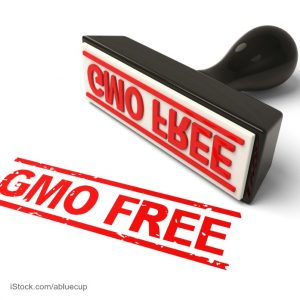A study conducted for the U.K. Food Standards Agency has found that GMO labeling would increase a family’s food costs by 33 cents to $5.58 a year. And a study by Consumers Union reviewed research on GMO labeling and found the annual median cost per person would be $2.30.
 Food & Water Watch says that Americans deserve to know what is in the food they buy. Groups like the Corn Refiners Association have claimed that Americans will spend more than $1,000 per year on groceries because of the costs associated with adding GMO labeling to products.
Food & Water Watch says that Americans deserve to know what is in the food they buy. Groups like the Corn Refiners Association have claimed that Americans will spend more than $1,000 per year on groceries because of the costs associated with adding GMO labeling to products.
The CRA study number is so high because they include increases in distribution costs and the costs of switching ingredients in processed foods to organic or non-GMO, even though labeling laws set to go into effect do not have those requirements. Labeling laws will not cost consumers much money at all.
Sixty-four countries around the world already have GMO labeling laws. And corporations such as Campbell’s and General Mills are going to start labeling these products they sell in the U.S.
Poll after poll has found that most consumers want to see GMO foods labeled. A Consumers Union poll taken in 2010 found that 95% of U.S. consumers want to see mandatory labels on meat and milk from GMO animals. And in 2013, a New York Times poll found that 93% of those responding wanted labels on all genetically engineered food.
Food & Water Watch also points out that the FDA has no way to track any adverse health effects that may be possible from ingesting GMO foods because there is no way to know if they are in foods. And research on GMO foods is limited because the companies that own the patents do not allow the foods to be grown for research purposes.
The crops that are most likely to contain GMOs include sweet corn, cotton, sugar beets, squash, soy, papaya, alfalfa, canola, and corn. That means that foods such as cornstarch, corn meal, canola oil, soy flour, and cottonseed oil are most likely derived from GMO crops. Milk and cheese can come from cows treated with rBGH, a GMO growth hormone, and most feed eaten by livestock consists of GMO grains and grasses.




